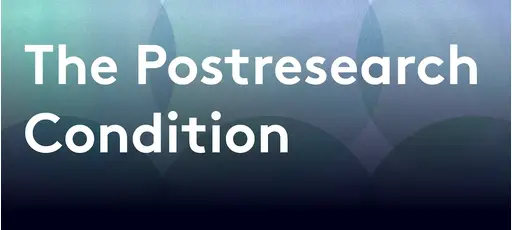
until
The Postresearch Condition – Conference
EARN Conference – Opening Program Redux
The annual EARN Conference was held at BAK, basis voor actuele kunst in Utrecht from 26–30 January 2021.
Due to the Covid-19 situation, the opening program, a conversation between Peter Osborne and Hito Steyerl, had to be postponed. This event now takes place as a hybrid activity on 21 May 2021 in collaboration with UCL, London.
Program
No Going Back – But Not Forward to There Either: Once More on Art and/as Research Peter Osborne (Kingston University London)
This talk reflects upon the contradictions between the intellectually substantive and the purely administrative and legitimating functions of discourses of artistic “practice as research,” and how they might be mediated and negotiated by practitioners. These discourses and the distributive practices they establish and sustain are not likely to go away in the near future. The idea of a “post-research situation” is merely a paradoxical extension of the “research situation” in the same way that the terminology of the “postmodern” was a reflexively self-contradictory way of extending the temporality of the modern under the conditions of the aging of a particular “modern”.
INTERVENTION
Hito Steyerl (UdK Berlin)
Following on from Peter Osborne’s presentation, Hito Steyerl focuses the discussion through a series of questions and comments.
Venue/Virtual Host:
HKU University of the Arts, Utrecht and Art, Design & Museology, UCL Institute of Education, London
Moderated by Marquard Smith(UCL) and Ola Hassanain (HKU Utrecht/Academy of Fine Arts Vienna).
This talk reflects upon the contradictions between the intellectually substantive and the purely administrative and legitimating functions of discourses of artistic “practice as research,” and how they might be mediated and negotiated by practitioners. These discourses and the distributive practices they establish and sustain are not likely to go away in the near future. The idea of a “post-research situation” is merely a paradoxical extension of the “research situation” in the same way that the terminology of the “postmodern” was a reflexively self-contradictory way of extending the temporality of the modern under the conditions of the aging of a particular “modern”.
INTERVENTION
Hito Steyerl (UdK Berlin)
Following on from Peter Osborne’s presentation, Hito Steyerl focuses the discussion through a series of questions and comments.
Venue/Virtual Host:
HKU University of the Arts, Utrecht and Art, Design & Museology, UCL Institute of Education, London
Moderated by Marquard Smith(UCL) and Ola Hassanain (HKU Utrecht/Academy of Fine Arts Vienna).
with: Peter Osborne, Hito Steyerl